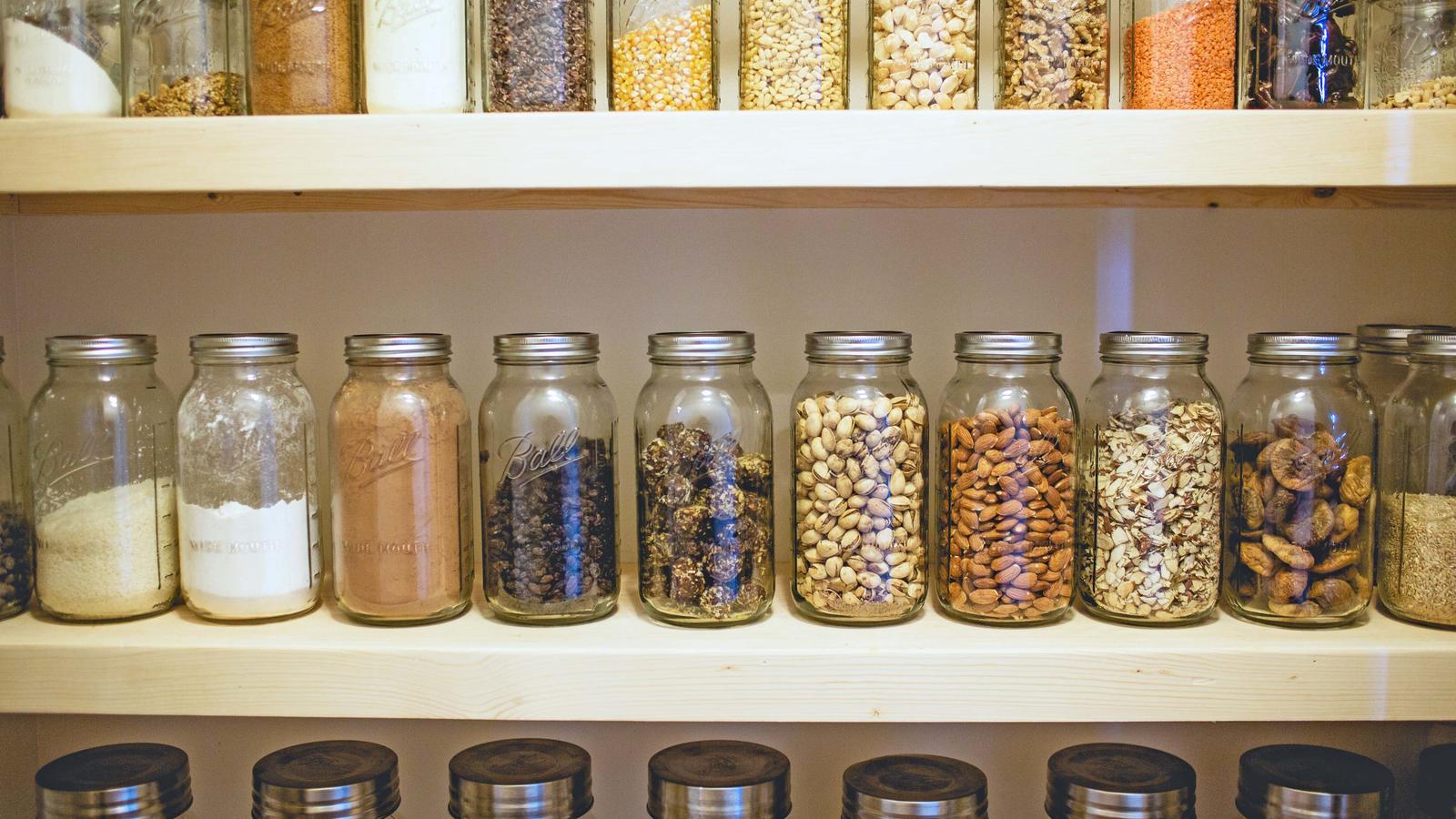
Stocking Up
How Rescue And Relief Workers Are Drawing On The Lessons Learned From Hurricane Harvey To Prepare For The Next Big Disaster
By Tracy L. Barnett
How Rescue And Relief Workers Are Drawing On The Lessons Learned From Hurricane Harvey To Prepare For The Next Big Disaster
It was the relief effort watched around the world. As big as Hurricane Harvey was, the human spirit of Houston was bigger: A Texas-sized show of solidarity came through in the aftermath of the hurricane. The number of neighbors helping neighbors — in kayaks, in motorboats, in pickup trucks, in human chains — seemed to break all past records.
And yet gaping holes in the social fabric still affect the daily lives of thousands of people. A year later, nonprofits and grassroots disaster-relief organizations are trying to patch these holes while they prepare for the next disaster — because at this point, Houston has accepted that it’s not “if,” it’s “when.”
Some grassroots groups coalesced spontaneously during Harvey, after Houston’s institutional response became bogged down by the storm’s magnitude. When the streets around the Houston Food Bank flooded, groups like the Midtown Kitchen Collective and the Giving Hub worked to fill the food-delivery vacuum. DIY rescue and relief groups including Recovery Houston and the Cajun Navy operated around the clock without pay, relying on social media networks, fast-paced innovation and pure grit. Meanwhile cash-strapped community organizations like Casa Juan Diego, Boat People SOS Houston and the Texas Environmental Justice Advocacy Services (TEJAS) depended on an influx of volunteers who helped pick up the slack during the storm.
Event planner Kat Creech, who started the Facebook group that became Recovery Houston, marveled at the number of hearts and hands working to help in the days after the storm. As the year wore on and relief efforts turned to rebuilding, however, the numbers dwindled. Creech blames compassion fatigue — and what she calls “survival fatigue.”
“These people are doing everything they can to keep putting one foot in front of another as the rest of the world has gone back to normal,” she says.
Dr. Betsy Escobar, who volunteers at Casa Juan Diego — a Catholic charity that serves immigrants, refugees and the poor — said the center was overrun after Harvey by immigrants who feared detention by Immigration and Customs Enforcement if they went to shelters or the convention center. “FEMA gave us a bunch of cookies, but we have a lot of people who are diabetic so that was not very helpful,” she recalls. Thankfully, the Houston Farmers Market came through with produce, rice and beans. Their next problem was the opposite: They suddenly started getting more help than they could handle. “We got a mountain of clothes, and that’s nice — but we were a little overwhelmed because it was too much,” Escobar says.
This feast-or-famine problem was not exclusive to Casa Juan Diego, according to Balaji Koka, associate professor of strategic management at the Rice Business. On the one hand, Koka witnessed a highly effective response by individuals and small organizations in his area. On the other hand, there were significant gaps in service, something that could be addressed by better coordination among city and county organizations, he said.
“Social media definitely enabled people to become a community with some amount of organization and coordination without any hierarchy,” Koka observed. “But sometimes the same lack of hierarchy would result in one house affected by the disaster being visited by three or four different volunteers, while another house would get lost in the shuffle.”
Rice Business Wisdom surveyed seven community leaders who were involved in Hurricane Harvey rescue, relief and recovery efforts. Here, we distill their collective wisdom about how to maximize our effectiveness in the next big storm.
BEFORE THE STORM
Should I buy a boat or a truck so I can escape or rescue people?
The consensus on this one is a definite NO. Unless you’re an experienced boater with training in navigating floodwaters, you can quickly become a liability, according to Captain Taylor Fontenot with the Cajun Navy.
Instead, find people in your neighborhood who do have boats and trucks and are willing to use them or volunteer them for the rescue efforts, recommended Jonathan Beitler, a volunteer with the ad hoc Midtown Kitchen Collective. In the desperate days after Harvey, the Midtown Kitchen Collective developed ihavefoodineedfood.com, a platform that helped coordinate many of the 300,000 meals distributed by the group, linking thousands of people eager to donate food with the volunteer chefs and service organizations who needed that food. A similar platform could easily be developed to coordinate and connect people who have boats and trucks with people who need them, Beitler said.
Should I stock up on extra canned goods and water so I can have them on hand when the storm hits?
By all means stock up, but be sure you are getting the right things when it comes to giving. The Houston Food Bank is already in preparation mode for this year’s hurricane season, assembling 25,000 disaster boxes of shelf-stable food to have on hand in the event of a mass emergency, said communications director Adele Brady. Lessons learned from last year’s disastrous flooding of the streets around the food bank: The organization is moving towards a hub-and-spokes delivery model, moving resources out to collaborating service centers throughout the city.
What else should I do to prepare?
Take care of yourself and your family first. That way you can be prepared to step in and help with others. Locate your closest shelter and get to know the evacuation route. Have your essentials packed just in case: all family members’ identification, medical records, prescriptions. Pack a “first-day kit” with all the water, food, medicine and anything else you need to survive for a couple of days. Fill your gas tank.
And don’t wait until a hurricane is on the horizon to offer your assistance. Thousands of people still lack adequate housing, furniture, trauma counseling, and other essential needs after Hurricane Harvey. Scores of local organizations are engaged in ongoing recovery efforts, and will be for some time — and they need help.
“After the disaster, everyone wants to help – but maybe think of helping at other times, not just one week after a disaster,” said Escobar. You can sign up with a group like Volunteer Houston, which matches people and their talents with relevant local nonprofits, and develop an ongoing relationship with one of them. You can also register with the group you want to commit to so that they will have your name, contact information and special skills on hand in case of an emergency.
WHEN DISASTER STRIKES
What if I don’t want to evacuate?
Mandatory evacuation is serious, says Fontenot with the Cajun Navy. He and his crew spent valuable hours going back every day to check on people who weren’t ready to leave — time that could have been spent rescuing others. Be aware of what’s going on around you and follow the protocols, he urges.
And be aware that others in your midst might not understand what’s going on — because of language and cultural barriers or disabilities — and that they may be in need of individual help, advised Jannette Diep of Boat People SOS Houston, which has been serving the Vietnamese community of Houston since 1999. An estimated 120,000 Vietnamese immigrants live in the greater Houston area, plus thousands more Southeast Asians of different ethnicities. “These people come from war-torn countries and they’ve already been displaced; they’re afraid of being displaced again,” Diep cautions.
Others aren’t aware of the massive chemical discharges that can and did occur in the industrial corridor of East Houston, said Bryan Parras, director of the Texas Sierra Club and organizer of the People’s Tribunal on Hurricane Harvey Recovery. Or in many cases, they are aware, but they have nowhere else to go. He, like many of his neighbors, suffers from skin rashes and respiratory problems, collateral damage from petrochemical spills.
What should I donate?
Most organizations, like the Houston Food Bank, Juan Diego House and Boat People SOS Houston, will be posting lists of what they need on Facebook or their websites. Check those first.
“When you hear the media talk about how people have lost everything … people inherently start literally bringing everything,” said Creech. “That is wrong in epic proportions — because then you need a warehouse to sort things and hundreds of volunteers to do the sorting. People in a shelter don’t want your dress slacks, they don’t want your stuffed animals, they don’t want your old ceiling fan.”
For those who are in shelters, provide the basics: dry goods, tuna, water, toothpaste and toothbrushes, comfortable clothes, clean socks and underwear. It’s helpful for clothes to be clearly labeled for gender and size for fast processing.
If you’d like to donate used goods to help families with long-term recovery needs, do it during the year, not during the disaster, and give to an establishment that has a warehouse and a staff set up to process and distribute it. Organizations like Helping Hands, the Houston Furniture Bank, and Star of Hope take donated items for distribution among the needy. The city of Houston’s Reuse Warehouse and the Habitat for Humanity ReStore accept reusable building materials and other items that can be used in reconstruction efforts. Some agencies even offer pickup services.
For the civilian rescue crews, bear in mind that they are risking their lives and in many cases their daily bread to save others. Rather than giving your money to big international nonprofits, give directly to the people you see doing the work on the front lines, says Fontenot. They’ll take cash anytime, as well as food, fuel and water during the disaster.
“If that stuff is handled, we can just stay in the water and keep working,” he says.
Tracy L. Barnett is an independent writer based in Guadalajara. She aspires to a zero-waste lifestyle but hasn't yet found a substitute for Rancheritos.


